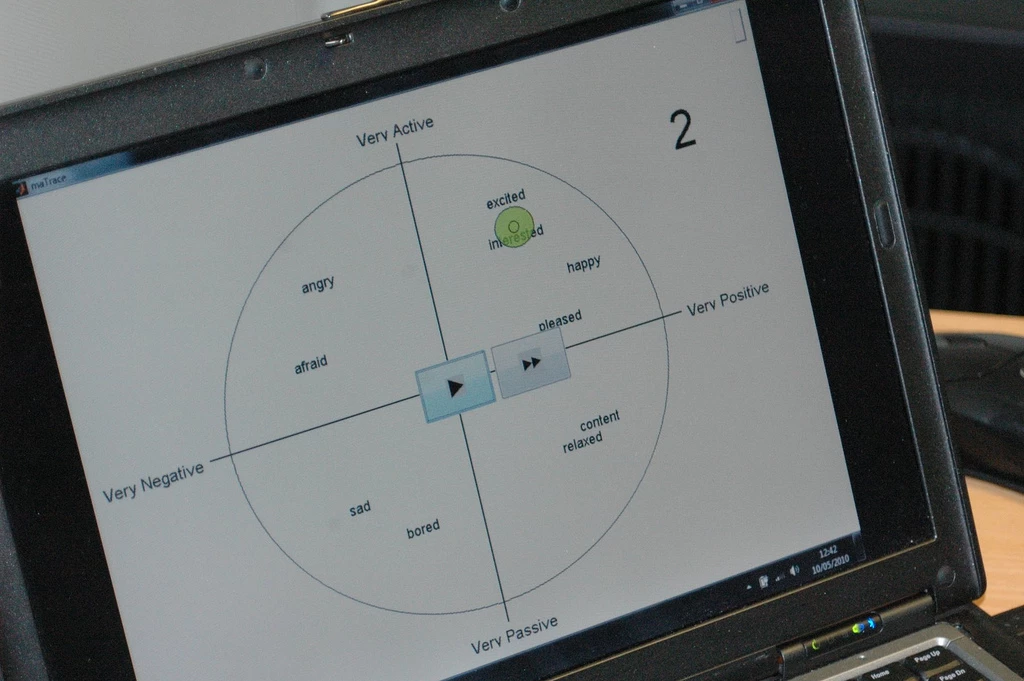Whether you're chilling out to some smooth jazz, venting a spleen with the help of hard rock or jumping for joy to the latest in bubblegum pop – there always seems to be a song or an album that suits whatever mood you happen to be in. A research project at Glasgow Caledonian University is currently taking a close look at why a certain piece of music evokes a particular emotive response. It is hoped that the research may lead to music being used to bring folks out of a depression or even help with pain management.
Previous studies on how music effects our emotions has generally concentrated on classical music. But volunteers for the Glasgow project were asked to listen to a piece of modern music and move a cursor around a four section graph on a computer screen to indicate how the tune made them feel. The research team used music not on general release to try and avoid any personal connections that volunteers may have had to a track they'd heard before, such as an emotional association with a loved one or a tragic event.

Characteristics of similarly-rated music were then examined using advanced signal processing techniques to try and discover why a particular piece enlisted a certain reaction. Project leader, and audio engineering specialist, Dr. Don Knox explained: "We look at parameters such as rhythm patterns, melodic range, musical intervals, length of phrases, musical pitch and so on. For example, music falling into a positive category might have a regular rhythm, bright timbre and a fairly steady pitch contour over time. If tempo and loudness increase, for instance, this would place the piece in a more 'exuberant' or 'excited' region of the graph."
The aim of the project is to develop a comprehensive mathematical model that would allow for the identification of pieces of music based on a person's mood. Such information could then go on to be used to help with motivation or concentration or relaxation. Music may well even find itself being issued on prescription to fight depression or help people cope with pain.

Online music stores already tag tunes depending on the feel of the track, Dr Knox says that this project hopes to refine this approach to give it "a firm scientific foundation, unlocking all kinds of possibilities and opportunities as a result."
The next stage in the development of the project is to assess the impact of lyrics before moving onto to cataloging how people use and experience music at a subjective level.
More information on the "Emotion Classification in Contemporary Music" project is available on the University's website.
The UK's Engineering and Physical Sciences Research Council, who funded the project, has also produced a video overview of the research:






